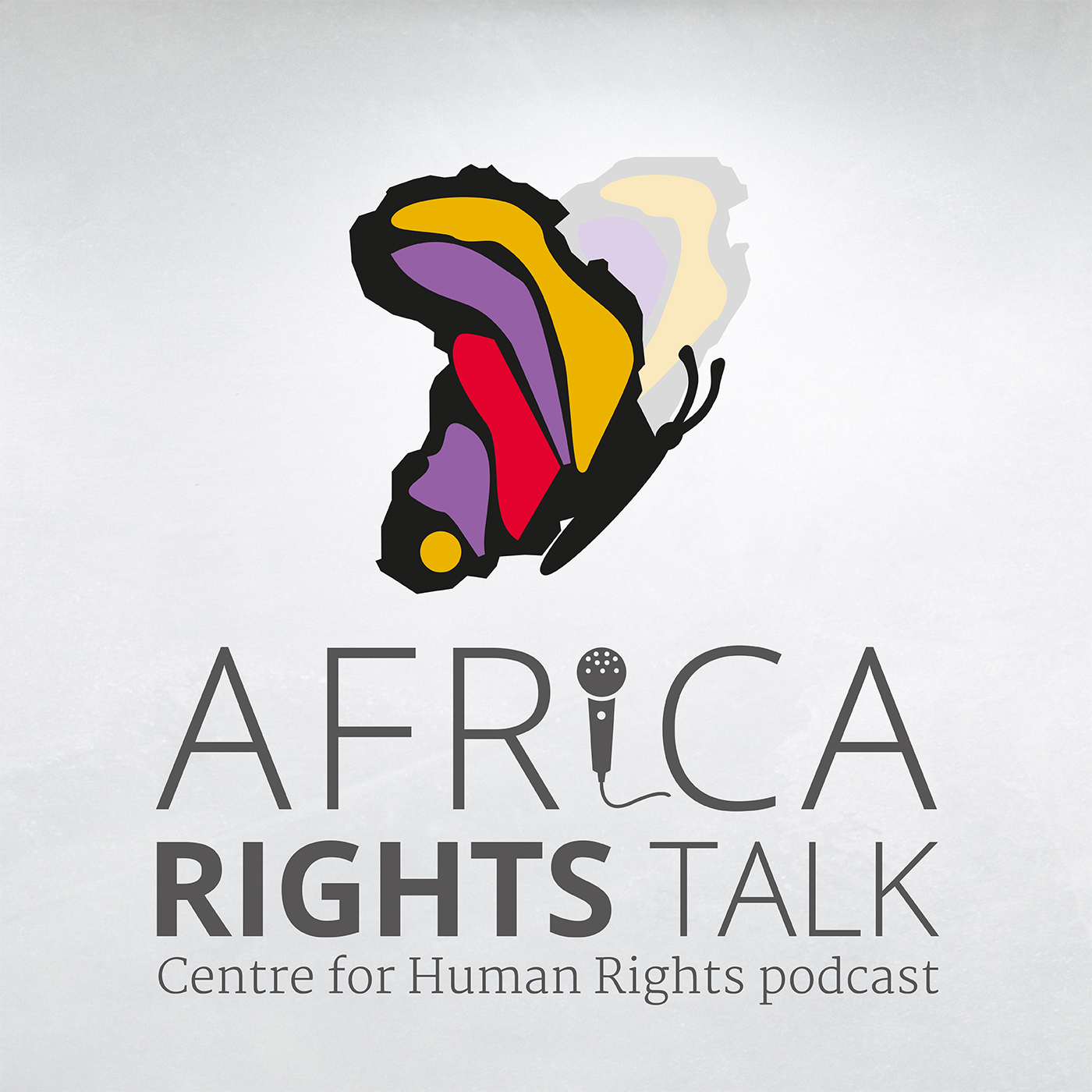Episodes
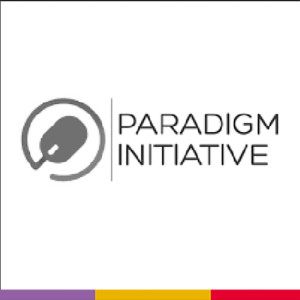
Monday Jul 26, 2021
S3 E7: #Tech4Rights: Confronting online violence against sexual minorities
Monday Jul 26, 2021
Monday Jul 26, 2021
In conversation with Laurah Arudi Maina, Kofi Yeboah and Emsie Erastus
The Centre for Human Rights partnered with Paradigm Initiative in advancing digital rights in Africa through the Digital Rights and Inclusion Media Fellowship (DRIMF) that is offered by Paradigm Initiative. DRIMF is offered twice every year and is aimed at exposing the participants to the digital rights landscape and enhancing their knowledge and skills in digital rights in Africa. As part of the fellowship, the Centre for Human Rights’ Expression, Information and Digital Rights Unit offered an academic course on digital rights in Africa between March and June 2021. The Digital Rights in Africa course targeted participants from various countries in Africa and was delivered by renowned digital rights experts on the continent. It covered themes such as elections in the digital age, artificial intelligence, privacy and data protection, rights of vulnerable and marginalised groups as well as freedom of expression, access to information in the digital age.
As part of the course and a contribution to the Centre for Human Rights’ #Tech4Rights campaign, this episode discusses online violence sexual minorities. The Centre for Human Rights’ 2021 theme, #Tech4Rights: Rethinking a human rights-based approach to new technologies in Africa, focuses on the intersection between technology and human rights. As part of the campaign, the Centre for Human Rights is running a series of activities that look into technology from the perspective of various thematic areas of human rights. The Digital Rights in Africa course is one of the activities that are aimed at advancing the #Tech4Rights campaign.
This podcast episode is a conversation on confronting online violence sexual minorities. In Africa, several governments have developed laws that criminalise LGBTIQ+ persons and infringe on their human rights. Laurah Arudi, an expert on SOGIE (sexual orientation, gender identity and expression rights) and participants of the Digital Rights in Africa course who are also Paradigm Initiative Fellows, Kofi Yeboah and Emsie Erastus explore the rights of sexual minorities online. They discuss the concept of digital rights and how the existing regional and international human rights frameworks either protect or infringe on the digital rights of LGBTIQ+ persons, the opportunities presented to sexual minorities in this digital era and possible avenues that LGBTIQ+ persons should take when advocating for their digital rights. The discussion also elaborates on insights on how digital platforms have increased awareness of the plights of sexual minoroities and also contributed to a subtle change in behaviour. The discussants argue that, while the digital era has created an unconventional, yet effective conduit for LGBTIQ+ persons to mobilise local and international support, these platforms have also exacerbated tailored online abuse and attacks against sexual minorities. In other words, digital platforms have become a double-edged sword in tackling the digital rights violations of LGBTIQ+ persons in Africa. In light of these challenges, Kofi and Emsie proposed recommendations for advocacy approaches and underscored the persuasion of policymakers and governments instead of focusing on sensitising individuals. They also underscored the need for aligning digital rights laws with international with international human rights laws.
Emsie Erastus is an ICT researcher who is curious about the interaction between technologies and humanity and the autonomy, culture and how they intersect with digital technologies. Emsie holds an MSc in Media and Communications (with Distinction) from the London School of Economics and Political Science (LSE). In 2019, Emsie received the prestigious Chevening Scholarship. She has worked as a newspaper journalist (nominated and won several awards), researcher, and gender analyst.
Kofi Yeboah holds a is a technology inclusion advocate and his research interests include intersections of the internet, artificial intelligence and inclusion, and the digital divide in sub-Saharan Africa. Kofi participated in the Global Voices research team as a co-lead in a study conducted a regional of Facebook’s Free Basics app. The study measured the app against collectively-developed benchmarks of usability, quality of connection, language and accessibility, content, and privacy/data policies. Kofi ‘s contributions on internet freedom and authoritarian technology have appeared in major international and local media outlets including Aljazeera, Democracy in Africa, Coda Story, Fast Company, and Global Voices Online. His current research focuses on artificial intelligence and inclusion gaps. Kofi holds a Master’s degree in Communications and Technology; a Certificate in Community-based Research and Engagement; and a bachelor’s degree in Economics and Sociology.
Laurah Arudi Maina is a passionate human rights advocate for social justice. She focuses on awareness-raising through researching, organising, advocating and implementing projects that seek policy reforms, equity, and the explicit inclusion and protection of all persons, specifically sexual minorities. Arudi holds a Bachelor's degree in Sociology and Psychology from Kenyatta University. She also holds a Masters in Philosophy degree from the Human Rights and Democratisation in Africa program by the Centre for Human Rights, University of Pretoria. Currently, she works with the Network of African National Human Rights Institutions. Her work entails increasing the capacity of African National Human Rights Institutions (NHRIs) in realising Resolution 275 that speaks against violence and discrimination of Lesbian, Gay, Bisexual, Trans, Queer, Intersex, Asexual and Gender-non-conforming (LGBTIAGNC) persons.
This conversation was recorded on 8 June 2021.
Edited by Tatenda Musinahama
Music: Inner Peace by Mike Chino https://soundcloud.com/mike-chinoCreative Commons — Attribution-ShareAlike 3.0 Unported — CC BY-SA 3.0 http://creativecommons.org/licenses/b...Music promoted by Audio Library https://youtu.be/0nI6qJeqFcc
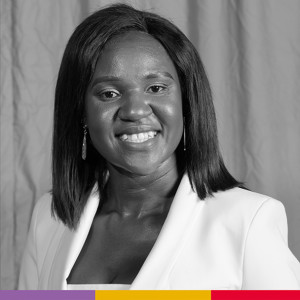
Tuesday Jul 20, 2021
Tuesday Jul 20, 2021
In conversation with Ms Opal Sibanda
The annual campaign for the Centre for Human Rights, University of Pretoria is #Tech4Rights: Rethinking a human rights-based approach to new technologies in Africa. The campaign focuses on the impact of new technologies on different aspects of human interaction and the impact of technology on human rights. This campaign has a series of activities that look into technology in various specific areas.
The use of digital technologies has become an essential aspect of most people’s daily lives and children are not an exception to this. The digital space exposes children to new ideas and diverse sources of information. Using digital technologies also arguably exposes children to new opportunities to learn, reduces inequalities and contributes to the realisation of their rights such as the right to education, the right to privacy, freedom of expression, access to information and public participation. Adversely, the use of digital technologies also presents risks for children. The focus of the this episode is to contextualise the long term effects of internet use on children’s well-being, to find ways to support a positive and effective use of digital gadgets in advancing children’s rights and addressing inequalities in children’s access to technology and to inform and guide policy makers, child rights activists and parents alike, on how to maximise the potential of technological advancement.
Ms Opal Sibanda is an Assistant Legal Researcher at the Secretariat of the African Committee of Experts on the Rights and Welfare of the Child. She obtained her LLM in Human Rights and Democratisation in Africa (HRDA) from the Centre for Human Rights, University of Pretoria in 2020. She has extensive experience in children's rights and has interests in juvenile justice and children’s rights in the digital age.
Music: Inner Peace by Mike Chino https://soundcloud.com/mike-chinoCreative Commons — Attribution-ShareAlike 3.0 Unported — CC BY-SA 3.0 http://creativecommons.org/licenses/b...Music promoted by Audio Library https://youtu.be/0nI6qJeqFcc

Tuesday Jul 06, 2021
S3 E5: #Tech4Rights: Access to the internet and internet governance in Africa
Tuesday Jul 06, 2021
Tuesday Jul 06, 2021
In conversation with Bulanda Nkhowani, Amina Idris and Koliwe Majama
The annual campaign spearheaded by the Centre for Human Rights, University of Pretoria is #Tech4Rights: Rethinking a human rights-based approach to new technologies in Africa. The #Tech4Rights campaign focuses on the impact of new technologies on different aspects of human interaction and the impact of technology on human rights. This campaign has a series of activities that look into technology in various specific areas.
The Centre for Human Rights, University of Pretoria through its Expression, Information and Digital Rights Unit, and Paradigm Initiative (PIN) entered into a partnership offering an academic course to 30 select participants of PIN’s programmes and the Digital Rights and Inclusion Media Fellowship (DRIMF). DRIMF is a four-month fellowship with two intakes from 1 March to 30 June and from 1 August to 30 November each year. PIN also presents a 9-month Digital Rights and Inclusion Learning Lab from 1 March to 30 November every year. Through various learning methods, fellows are introduced to the international and regional digital rights ecosystem. The objectives of the fellowship are to expose participants to the digital rights landscape and enhance their knowledge and skills in digital rights in Africa.
In light of this partnership and the annual campaign of the Centre, this episode discusses access to the internet and internet governance in Africa. The speakers, Bulanda Nkhowani, Amina Idris and Koliwe Majama, share their insights on access to the internet and internet governance, drawing their experiences from Zambia and Nigeria. The discussion explores what meaningful access means, based on Part IV of the African Commission on Human and People’s Rights resolution on Freedom of Expression and Access to Information on the internet, including conversations on regulatory and operational challenges of licencing community networks in Africa. Furthermore, the discussion explores solutions for bridging the gender digital divide at national level and how to address the growing trend of network disruptions, both nationally and regionally. The podcast concludes by giving recommendations to service providers and governments on how to ensure that citizens have access to critical information during the third wave of the COVID-19 pandemic.
Bulanda Tapiwa Nkhowani is a writer, researcher and public policy enthusiast with a focus on internet governance, digital rights and digital inclusion, and is actively involved in internet governance policy forums and discussions at all levels. She is a co-convenor of the Zambia Internet Governance Forum (Zambia IGF) and an alumna of the Africa School on Internet Governance (AfriSIG). Bulanda currently works with Paradigm Initiative as a Digital Rights and Inclusion Program Officer and regional lead for Southern Africa.
Amina Ibrahim Idris is an experienced officer in community development and capacity building with focus on connecting underserved youths with ICT enabled opportunities to improve their livelihood. Amina works with the Digital Inclusion team at Paradigm Initiative and she is the program assistance for the Northwest region.
Koliwe Majama is a Zimbabwean Media, Information, Communications and Technologies Consultant with over 15 years’ experience working in civil society lobby and advocacy. She has invested in networking and thought leadership on varying internet governance trends on a regional and global level, including gender and the internet, which she is passionate about. She currently works with the Association for Progressive Communications as a coordinator of the African Declaration on Internet Rights and Freedoms Coalition (AfDec) and as an organiser of the African School on Internet Governance (AfriSIG).
This conversation was recorded on 15 June 2021.
Edited by Tatenda Musinahama
Music: Inner Peace by Mike Chino https://soundcloud.com/mike-chinoCreative Commons — Attribution-ShareAlike 3.0 Unported — CC BY-SA 3.0 http://creativecommons.org/licenses/b...Music promoted by Audio Library https://youtu.be/0nI6qJeqFcc
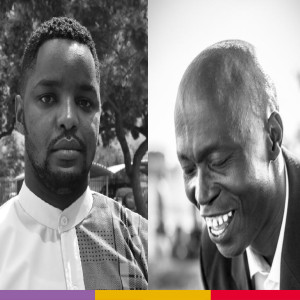
Thursday Jun 24, 2021
S3 E4: #Tech4Rights: The use of assistive technologies for persons with disabilities
Thursday Jun 24, 2021
Thursday Jun 24, 2021
In conversation with Mr Silver Francis Oonyu and Mr Wilson Macharia
The annual campaign spearheaded by the Centre for Human Rights, University of Pretoria is #Tech4Rights: Rethinking a human rights-based approach to new technologies in Africa. The #Tech4Rights campaign focuses on the impact of new technologies on different aspects of human interaction and the impact of technology on human rights. This campaign has a series of activities that investigate technology in various specific areas, including assistive technologies and persons with disabilities. Assistive technology includes products, equipment and systems that enhance learning, working, and daily living for persons with disabilities. Some common assistive technologies include but are not limited to hearing aids used to enhance hearing; cognitive aids often used by people with memory and attention challenges; and voice recognition programmes, screen readers, and screen magnifiers used by people with mobility and sensory impairments.
In this episode we have Mr Wilson Macharia, an LLD candidate working at the Centre for Human Rights, who is in conversation with Mr Silver Francis Oonyu, a Disability Rights Advocate from Uganda. Although from different national and professional backgrounds, both Wilson and Silver use assistive technology, and shall be discussing their experiences as users with visual impairment. Notably, assistive technologies vary depending on the type and degree of one’s disability. Therefore, although this episode may touch on various types of assistive devices, the main focus shall be on those used by persons with visual impairment.
Legally blind, but privileged to be visionary, Mr Silver Francis Oonyu is passionate about inclusive education. He is a teacher by profession and a consultant in education. Silver is an advocate for persons with disabilities. He is passionate about activities that help persons with blindness and those who are partially sighted. Silver has made it his mission to empower children who are disabled. In 2014, he founded the Silver Memorial Inclusive Learning Center (SMILE) School in Opucet, Uganda. The school teaches about 200 students on how to effectively use adaptive tools, including Braille, information communication technology, and canes.
Wilson Macharia is an LLD candidate and Tutor at the Centre for Human Rights. He is also a researcher in the Centre’s Disability Rights Unit. A consultant in disability rights, Wilson has been involved in designing and implementing key projects and policies aimed at eliminating the barriers that impede the full and effective participation of persons with disabilities. This includes coordinating the Public Participation Disability Inclusion Index project which seeks to enhance participation of persons with disabilities in political and public life in Kenya. Wilson sits in the Caucus for Disability Rights Advocacy hosted by the United Disabled Persons of Kenya, and is a member of the Reference Group which successfully conducted a baseline research on the inclusion of students with disabilities at the University of Nairobi. His research interests include access to justice, socio-economic rights of vulnerable groups and marginalised communities, and digital inclusion.
This conversation was recorded on 15 June 2021.
Edited by Tatenda Musinahama
Music: Inner Peace by Mike Chino https://soundcloud.com/mike-chinoCreative Commons — Attribution-ShareAlike 3.0 Unported — CC BY-SA 3.0 http://creativecommons.org/licenses/b...Music promoted by Audio Library https://youtu.be/0nI6qJeqFcc
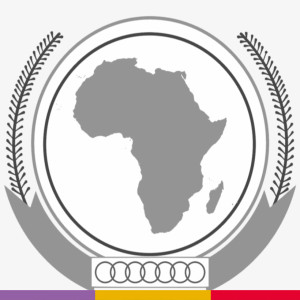
Wednesday Jun 09, 2021
S3 E3: The Pan- African Parliament
Wednesday Jun 09, 2021
Wednesday Jun 09, 2021
In conversation with Mr Clement Mavungu
The Pan-African Parliament (PAP) is a legislative body of the African Union. It was set out to ensure the full participation of African people in the economic development and integration of the African continent. The PAP is based in Midrand, South Africa and was inaugurated on 18 March 2004. The PAP provides a regional platform for Africans and respective civil society organisations to have a greater impact on the decisions affecting the continent.
To this effect, the Democracy and Civic Engagement Unit of the Centre for Human Rights, University of Pretoria, works extensively with the PAP. The Centre a partnership with the PAP through a Memorandum of Understanding, signed in October 2017. Key among the objectives of this partnership is facilitating capacity building on human rights and democratisation in Africa, increasing the visibility of PAP and fostering a strong interaction between the PAP and civil society organisations (CSOs) on the continent. The Democracy and Civil Engagement Unit ensures that civil society can engage with the PAP, contribute to its policies, and chart new directions for governance on the continent. To achieve its mission, Unit, in May 2019, met with CSOs from across Africa and established a forum that ensures effective and sustainable engagement with the PAP. This body, the CSO Forum, gives support to new or small organisations engaging with the PAP, and also assists the PAP in its outreach and advocacy campaigns, such as for the ratification, domestication and implementation of the AU legal instruments, particularly the new PAP Protocol. The Centre, through the Democracy and Civic Engagement Unit, manages the CSO Forum, whose members meet in Pretoria, South Africa twice a year to foster closer collaboration between CSOs on PAP-related issues, to advance and promoting the mandate of the continental Parliament.
In this episode, Mr Clement Mavungu, legal clerk of the PAP, discusses at length the functions of the Pan-African Parliament and how the work of the PAP enhances and protects the human rights of African citizens through the CSO Forum. Mr Mavungu is an international lawyer from the Democratic Republic of Congo (DRC) and currently serves as the Legal Counsel of the PAP. He is also an alumnus of the Master’s programme in Human Rights and Democratisation in Africa. He has worked as the Coordinator of the FIDH Programme on the African Court on Human and Peoples' Rights. He has also worked as a Senior Advocacy Officer for the Centre for the Study of Violence and Reconciliation. Mr Mavungu has experience working as a Policy and Research Manager at the Human Rights Institute of South Africa. Previously, he was a Legal Adviser at the ICJ Africa Regional Programme, where he led international and regional advocacy and litigation, built the capacity of African judges, lawyers and prosecutors, coordinated research and responses to judicial crises and supported human rights defenders and victims to access remedies for rights violations. He has published and presented papers on a wide range of human rights issues, including transitional justice, the African human rights system, judicial independence and reform, parliamentary law and practice and he effectively advocated and litigated before the United Nations and African human rights bodies. Mr Mavungu has extensive experience in undertaking comprehensive and comparative multi-disciplinary research in legal, political and policy issues, and is well versed with effective advocacy and litigation before the African human rights system.
This conversation was recorded on 20 August 2020.
Music: Inner Peace by Mike Chino https://soundcloud.com/mike-chinoCreative Commons — Attribution-ShareAlike 3.0 Unported — CC BY-SA 3.0 http://creativecommons.org/licenses/b...Music promoted by Audio Library https://youtu.be/0nI6qJeqFcc
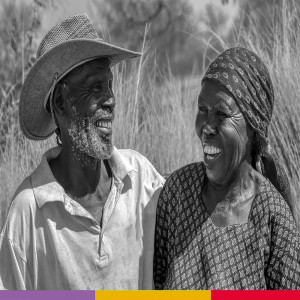
Thursday May 27, 2021
S3 E2: #AgeWithRights Campaign: Call to ratify the Protocol on Older Persons
Thursday May 27, 2021
Thursday May 27, 2021
In conversation with Mr Isaac Mamatela, Ms Lydia Chibwe, Ms Ramatoulie Jallow and Ms Hilma Moses
This special episode of Africa Rights Talk features Mr Isaac Mamatela who is the Chairperson of Gauteng Old People’s Forum. Ms Lydia Chibwe is a Project Officer of the Women's Rights Unit from the Centre for Human Rights at the University of Pretoria. Ms Ramoutoulie Jallow and Ms Hilma Moses are students of the LLM/MPhil programme in Human Rights and Democratisation in Africa. They are assigned to the Women’s Rights Clinic which contributes to the work of the Centre’s research units and gives the students practical experience and advance the Centre’s mission towards the realisation of human rights in Africa.
The aim of this conversation is to raise awareness to and increase ratification of the Protocol to the African Charter on Human and People's Rights on the Rights of Older Persons in Africa, also known the Protocol on Older Persons. Even though South Africa is among the African Union (AU) member states that adopted the Protocol on the Rights of the Older Persons on January 31, 2016, it has not yet signed or ratified the protocol. The Protocol's goal is to strengthen regional protection for older person's rights by providing an opportunity for older persons to enjoy their full rights and freedoms on an equal footing with other population groups. So far, 14 countries have signed the Protocol. These countries are Benin, Central African Republic, Chad, Comoros, Gabon, Ghana, Guinea, Lesotho, Mali, Mozambique, Rwanda, Sierra Leone, Togo, and Zambia. Only four states had ratified the Protocol as of April 2021: Benin, Ethiopia, Malawi, and Lesotho. The Protocol requires fifteen ratifications to enter into force and become helpful in advancing the rights of older people. Adopting the Older Person's Protocol is critical for strengthening legal safeguards for older people's rights and advocating for them. It will also supplement the South African government's policies and ensure national and regional remedies for violations of older people's rights.
In addition to this episode, the Disability Rights and Women's Rights Clinics at the Centre for Human Rights, University of Pretoria, cordially invite you to an advocacy meeting on ratifying the African Disability Rights Protocol and the Older Persons Protocol. Click here to download the invitation
This conversation was recorded on 11 May 2021.
Music: Inner Peace by Mike Chino https://soundcloud.com/mike-chinoCreative Commons — Attribution-ShareAlike 3.0 Unported — CC BY-SA 3.0 http://creativecommons.org/licenses/b...Music promoted by Audio Library https://youtu.be/0nI6qJeqFcc
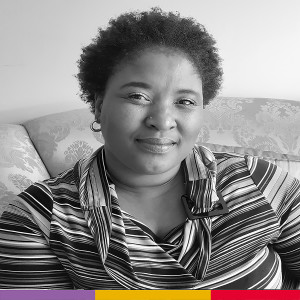
Tuesday Mar 09, 2021
S3 E1:Binaries and Boxes
Tuesday Mar 09, 2021
Tuesday Mar 09, 2021
In conversation with Dr Mzikazi Nduna
In this episode Dr Mzikazi Nduna is in conversation with Thiruna Naidoo from the SOGIESC Unit of the Centre for Human Rights, discussing gender binaries and boxes. Dr Nduna explains what sexuality and gender binaries are and goes on to give recommendations on how to rethink sexualities, gender identities and expressions in a manner that respects human rights. The conversation illustrates how human rights norms often enforce gender binaries and essentialise discourses on gender issues. In light of the high number of recorded cases of gender- based violence in South Africa and other parts of the world, she advocates for gender-based violence activists to include the LGBTIQ+ community in the conversation.
Dr Mzikazi Nduna is an esteemed South African with affiliations to a variety of academic and civil society organisations, movements and initiatives. Dr Mzikazi Nduna is an author, educator, a researcher, a trainer and a scholar with a strong ethic of community engagement with science. She has 25 years of work experience that spans teaching in two public high schools, peer education and training in various communities in South Africa, researcher and technical support in local, regional and international collaborations. She currently works as an associate professor at the University of the Witwatersrand. Dr Mzikazi Nduna’s work is underpinned by a philosophy to bridge the gap between science and practice. This has earned her recognition and awards. Dr Mzikazi Nduna contributes to the human rights sector and in particular to the LGBTIQ+ sector through her involvement in boards of organisations such as GenderDynamix, and IRANTI. She also serves the South African government and civil society through her appointment to various task teams: she is currently a member of the National Prevention Task Team for South African National AIDS Council (SANAC) and the 2020 National Technical Reference Team on the Legal Review of Discriminatory Laws. She has been running workshops and teaching using the ‘Boxes and Binaries’ since 2011 and has been a member of the course Faculty for the past three years. Some of Dr Mzikazi’s Nduna’s publications can be found here.
This episode was recorded during the Advanced Human Rights Course on Sexual Minority Rights in Africa presented by the Centre for Human Rights.
This conversation was recorded on 25 February 2021.
Edited by Tatenda Musinahama
Music: Inner Peace by Mike Chino https://soundcloud.com/mike-chinoCreative Commons — Attribution-ShareAlike 3.0 Unported — CC BY-SA 3.0 http://creativecommons.org/licenses/b...Music promoted by Audio Library https://youtu.be/0nI6qJeqFcc
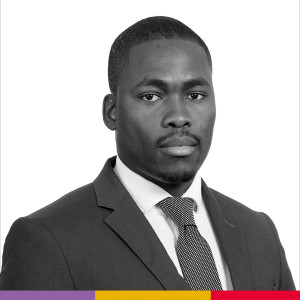
Wednesday Nov 18, 2020
Wednesday Nov 18, 2020
In conversation with Jonathan Kabre
In today’s conversation, Dr Jonathan Kabre explains how his academic journey in the field of international relations led him to winning the 2020 Law Faculty Prize (Prix de Faculté) from the University of Lausanne for the best doctoral dissertation. His dissertation, through a comparative analysis of case-law of selected international courts and tribunals, examines the role of private lawyers (counsel and advocates) in the settlement of international disputes and their contribution to the development of international law. The monograph, coming from this dissertation, is in the editing process and should be out before the end of the year.
Dr Kabre is the Programme Manager of the LLM in International Trade and Investment Law in Africa (TILA) presented by Centre for Human Rights and his research focuses on the areas of global economic governance, business and human rights and the settlement of international disputes. He is also Post-doctoral Research Fellow at the International Development Law Unit (IDLU). He was awarded the 2020 Law Faculty Prize (Prix de Faculté) from the University of Lausanne in Switzerland for the best doctoral dissertation. Dr Kabre was also awarded a grant to support the publication of his dissertation. This prize was awarded during the opening ceremony for the 2020 courses at the University of Lausanne, which took place on 15 September 2020.
This conversation was recorded on 26 October 2020.
Music: Inner Peace by Mike Chino https://soundcloud.com/mike-chinoCreative Commons — Attribution-ShareAlike 3.0 Unported — CC BY-SA 3.0 http://creativecommons.org/licenses/b...Music promoted by Audio Library https://youtu.be/0nI6qJeqFcc
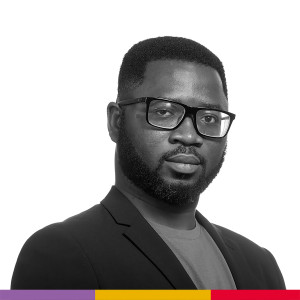
Tuesday Nov 03, 2020
S2 E17: #EndSARS: Practical implications of the protests on Nigerian citizens
Tuesday Nov 03, 2020
Tuesday Nov 03, 2020
Season 2 Episode 17: #EndSARS: Practical implications of the protests on Nigerian citizens
In conversation with Ayodele Sogunro
The Centre for Human Rights, University of Pretoria, condemns police brutality and human rights violations in Nigeria. These violations are in response to demonstrations by Nigerians expressing concerns about gross human rights violations by the Nigerian Police Force (NPF), particularly by the Special Anti-Robbery Squad (SARS), a tactical unit within the NPF designed to tackle incidents of armed robbery in Nigeria.
In today’s episode we pick up from last week’s conversation on #EndSARS: The need to end police reform and justice for victims of police brutality in Nigeria. In this week’s episode, we discuss with Ayodele Sogunro (from the Centre for Human Rights), the contested issues surrounding the #EndSARS protests. The discussion assesses the accountability measures which have been taken by the Nigerian government to address protestors’ concerns. Furthermore, the conversation brings to light the real implications of these protests for people at the forefront of the #EndSARS movement. Calls to involve the International Criminal Court (ICC) in investigating the extra-judicial killings of the #LekkiMassacre have been made by Nigerian citizens and we seek to understand whether the African Commission on Human and People’s Rights (ACHPR) might be a better option under the circumstances.
Ayodele Sogunro is a Nigerian writer and lawyer and the Manager of the SOGIESC Unit at the Centre for Human Rights in the Faculty of Law, University of Pretoria. He is a legal and policy analyst with over ten years of field and courtroom experience in human rights law and advocacy in the African human rights system. Before joining the Centre, he was the Senior Legal Advisor with the Initiative for Equal Rights, a LGBT+ NGO in West Africa. He is also currently undertaking his doctoral studies at the Centre. His focus is on a critical legal studies perspective of LGBTIQ+ issues in Nigeria, around political homophobia, socio-economic issues, and the need by advocates to understand wider state dynamics of homophobia and transphobia in systems of power. His books include the short stories The Wonderful Life of Senator Boniface and other Sorry Tales and the collection of essays Everything in Nigeria is Going to Kill You. His literary essay, ‘One more nation bound in freedom: Themes from the Nigerian “anti-gay” law’ was shortlisted for the 2016 Gerald Kraak Award for African Writing. He has written an article ‘Why #EndSARS won’t quit’ in relation to the protests.
Ayodele Sogunro’s blog: www.ayosogunro.com
This conversation was recorded on 29 October 2020.
Music: Inner Peace by Mike Chino https://soundcloud.com/mike-chinoCreative Commons — Attribution-ShareAlike 3.0 Unported — CC BY-SA 3.0 http://creativecommons.org/licenses/b...Music promoted by Audio Library https://youtu.be/0nI6qJeqFcc

Tuesday Oct 27, 2020
Tuesday Oct 27, 2020
In conversation with Victoria Ibezim- Ohaeri
The Centre for Human Rights, University of Pretoria, condemns police brutality and human rights violations in Nigeria. These violations are in response to demonstrations by Nigerians expressing concerns about gross human rights violations by the Nigerian Police Force (NPF), particularly by the Special Anti-Robbery Squad (SARS), a tactical unit within the NPF designed to tackle incidents of armed robbery in Nigeria.
In this week’s episode we speak to Ms Victoria Ibezim-Ohaeri, founder and Director of Research and Policy at Spaces for Change (S4C). S4C is a non-profit organisation based in Nigeria and conducts cutting-edge research and advocacy focusing on strategic sectors such as urban governance, gender inclusion, energy policy and defending the civic space. In this conversation, she walks us through the recent tensions in the country and analyses these tensions in light of the wider implications on the civic participation in Nigeria. Ms Ibezim- Ohaeri is an SXSW 2013 honouree, a 2016 Desmond Tutu Fellow and a 2015 alumna of Harvard University. In her 15 years of practising law and conducting social and economic rights research and advocacy, she has traversed four continents: Africa, Europe, North America and South America. Here she led research investigations, documenting and exposing human rights violations, formulating and analysing social and economic policy at national, regional and international levels.
This conversation was recorded on 24 October 2020
Music: Inner Peace by Mike Chino https://soundcloud.com/mike-chinoCreative Commons — Attribution-ShareAlike 3.0 Unported — CC BY-SA 3.0 http://creativecommons.org/licenses/b...Music promoted by Audio Library https://youtu.be/0nI6qJeqFcc

